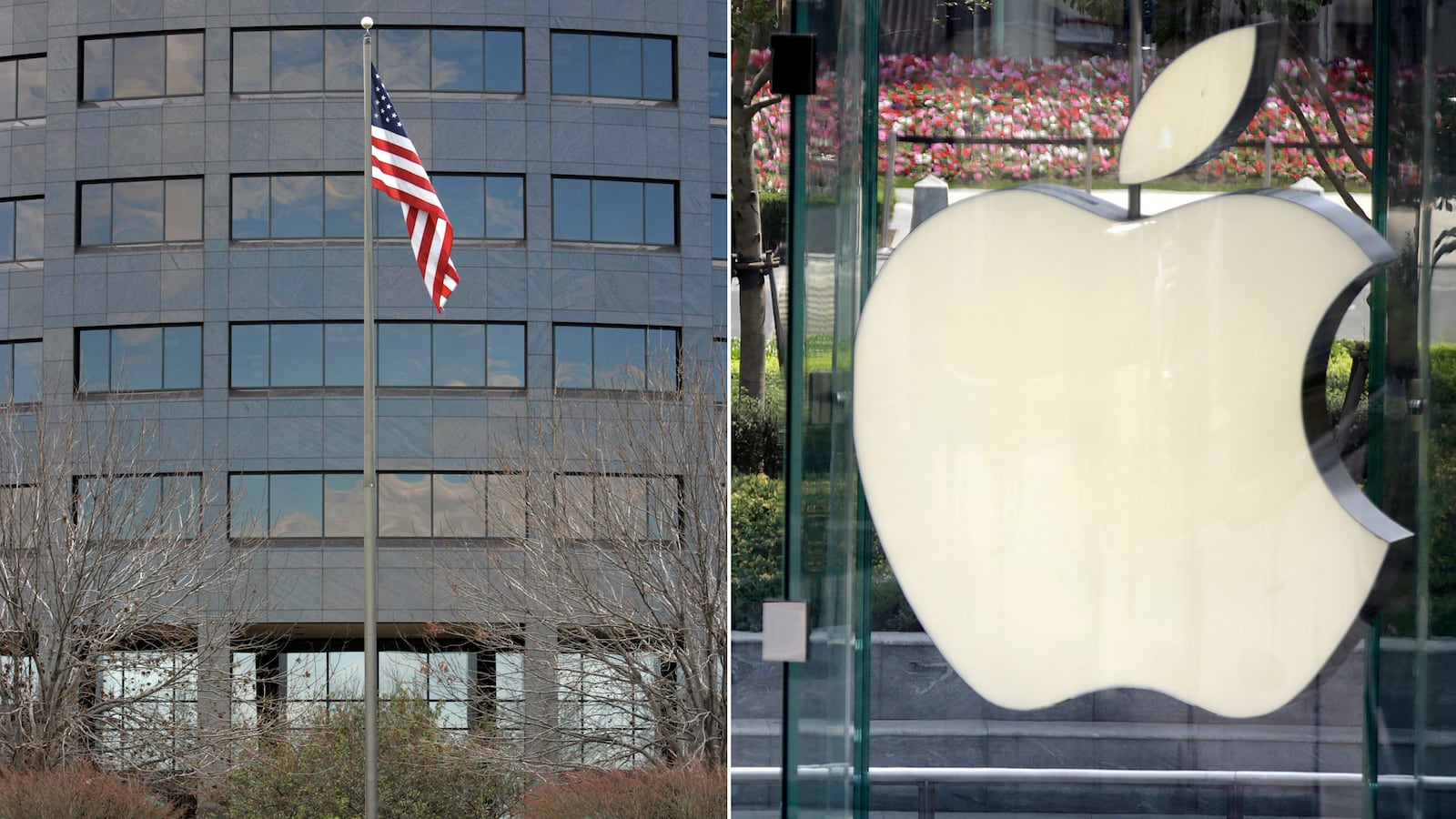Well, this is awkward: imagine if every time you went out and patronized your favorite store and bought your favorite product, you were putting money into the pocket of someone you loathe.

That’s the exquisite dilemma that Apple fanboys and fangirls of a liberal bent are about to face, now that a pair of left-wing hate objects have acquired a key supplier to the computer company.
Charles and David Koch, heirs to an industrial fortune, have spent their adult lives building up Koch Industries, a huge conglomerate with interests in oil, pipelines, chemicals, paper, ethanol, fertilizer, fibers, and cattle. They’ve used the profits of the privately held company to fund philanthropic efforts and engage in relentless political combat. They have deployed their cash in campaigns against global warming, against renewable energy, against Obamacare, against President Obama and congressional Democrats, against all sorts of progress. If liberals and progressives like it, it’s a good bet the Koch brothers are against it. (With the possible exception of public television, a cause to which David Koch has made significant, controversial contributions.)
The Kochs are, first and foremost, businesspeople. A good deal of their policy advocacy is about protecting their business interests. (If their daddy had left them interests in solar-panel manufacturers you could bet they’d be actively promoting carbon limits). But they have also proven willing to argue against their own interests. In 2011 Koch Industries opposed ethanol subsidies.
Koch Industries is one of the largest privately held companies in the U.S. Cash-rich and enjoying access to cheap capital, it is always on the lookout for new firms to add to its empire. And throughout the country, particularly in the Midwest, there are a host of large, unglamorous, profitable firms. These are companies whose CEOs don’t go to Davos or appear much on television. But they do make, process, ship, and trade the stuff that powers the global economy. And so they make attractive acquisition targets. In August Koch’s Georgia-Pacific unit completed the $1.5 billion acquisition of Buckeye Technologies, a Memphis, Tennessee–based fiber company. Last week, Koch’s Flint Hills Resources unit bought an ethanol plant in Iowa.
Molex is a company that falls into this category. Founded in 1938 in Brookfield, Illinois, it started off making molded plastics (Molex) and branched off into making electronics components for appliances, computers, and all sorts of electronic devices. Molex specializes in little-noticed but vital devices like connectors, antennas, and switches. If you have a smartphone, you probably have some Molex products in your pocket. In the fiscal year that ended in July, Molex had sales of $3.6 billion and net income of $243 million. It operates 41 plants in 15 countries.
Molex has been a beneficiary of the boom in electronics and device manufacturing that has been led in part by Apple. And while Apple is still a relatively small power in the massive global electronics manufacturing business, it’s an extremely important customer for Molex. “Sales to Apple accounted for approximately 14 percent of Molex’s $3.62 billion in revenue for the fiscal year ended June 30,” as The Wall Street Journal reported. In other words, there’s a very good chance some Molex products are in your iPhone, iPad, iPod, iMac, or MacBook.
On Tuesday Koch Industries announced that it is purchasing Molex for $7.2 billion. It will assume full control of the company. “At the close of the transaction, Molex will become a stand-alone subsidiary of Koch Industries and will continue to be operated by the company’s current management team,” Koch Industries said.Nothing much will change for Molex’s employees or customers as a result of this deal. But for some of the people who buy products packed with Molex components, the new arrangement may cause some cognitive dissonance at the checkout aisle. Consumers who dislike Koch Industries and everything its owners stand for politically can try to avoid their products. Boycott Georgia-Pacific. Or drive an electric car rather than use gas or ethanol. But this acquisition means you can’t simultaneously shun the Koch brothers and patronize Apple. All the right-thinking people who will flood the Apple stores later this month, or this holiday season, in search of the latest and greatest devices will be rushing to channel funds into Koch Industries.
I wouldn’t expect this to matter much. Even the most right-thinking among the bien-pensant generally don’t ask too many questions about the supply chains behind their favorite products and about the politics of those who profit indirectly from their patronage. After all, anything made of plastic uses petroleum, which is produced by lots of tyrants around the world. The owners of factories in China and Bangladesh are generally no friends to labor or the planet. Consumers tend to care that things are reasonably priced, that they work, and that they look cool.
So I wouldn’t expect a boycott. In fact, Koch Industries’ acquisition of a major Apple supplier may reinforce Apple’s status as a hipster brand. Irony is a key component of the hipster aesthetic. And what could be more ironic than liberals funding Koch Industries?




